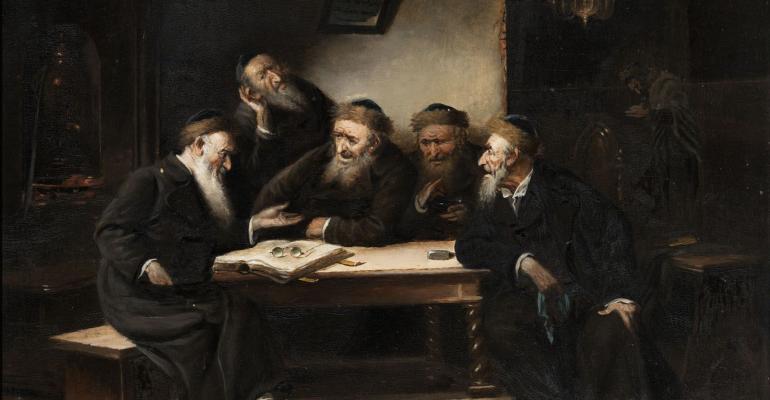Is a 2,000-year-old practice still relevant to us today?
Can it teach us anything about how to be a great wealth manager? Or for that matter, an effective leader, parent or spouse?
The answer is a resounding yes.
Midrash came into existence around 100 AD. Rabbis used it in Biblical times to bring fresh meaning to ancient texts. The whole idea was to reinterpret something written long ago to make it relevant to current times.
In fact, midrash is entirely relevant today – and not just for religious purposes. Though it may not go by that name, midrash is making and remaking our personal and business lives each day. If anything, we need to devote more time to it so its magic can work.
Midrash For The 21st Century
In thinking about midrash, a number of contemporary examples of the concept spring to mind.
Consider a theater production. Before a performance is brought to life on stage, the actors and director endlessly toil over the message. They interpret and reinterpret, looking for deeper meaning. The table readings of the script, preview performances and the final production are all part of a process designed to draw insight from the material.
Peter Drucker, the father of professional management, may also have been channeling midrash in his seminal work, The Effective Executive.
In that book, Prof. Drucker suggested that an executive set aside one hour per day to think. That time can be invaluable, he wrote, because so many solutions occur when we reflect and analyze what’s going on around us. (He offered that advice long before the frenetic pace of digital culture created exponentially more distractions!)
Joseph Campbell, a sage followed by many Silicon Valley founders, endorsed the same concept. He stated, “Sacred space is an absolute necessity for anybody today. You must have a room, or a certain hour or so a day where you can simply experience and bring forth what you are and what you might be.” Sounds like midrash to me.
A counterintuitive aspect of modern life that exemplifies the midrash spirit are start-ups. Why are so many startups launched by college students? Because they actually have time to think without the pressure of work and family bearing down on them. The results, as we have seen in this latest round of innovation, are spectacular.
Slow Down Tiger
I recently had the opportunity to talk to my pastor to understand his process of putting together a Sunday sermon.
His sermon might take only 25 to 30 minutes to deliver to the congregation, but it took almost an entire week to prepare. The time spent in introspection was necessary to crystalize a current perspective about a portion of holy text written two millennia ago – midrash all over again.
For wealth advisors, the same lesson applies. If you examine the conventional wisdom or long-standing business practice long enough, there is often an opportunity to re-discover what’s been staring at you for a while.
Looking for a place to start midrash in your own practice? Read Harry Markowitz’s academic papers written from 1952 to 1959. I strongly recommend you take the time to read or re-read them and see how they could be interpreted in 2015. It will be time well spent.
* * *
Midrash requires that we be disciplined in setting aside time amid the competing demands for our attention.
If we do, there is no doubt we will achieve more. By slowing down the clock speed of our thoughts and emotions, we can reinterpret and read between the lines. That’s where the gold is.
Jeff Spears is Founder and CEO of Sanctuary Wealth Services and author of the blog, Wealth Consigliere. Follow Jeff on Twitter and Facebook.





